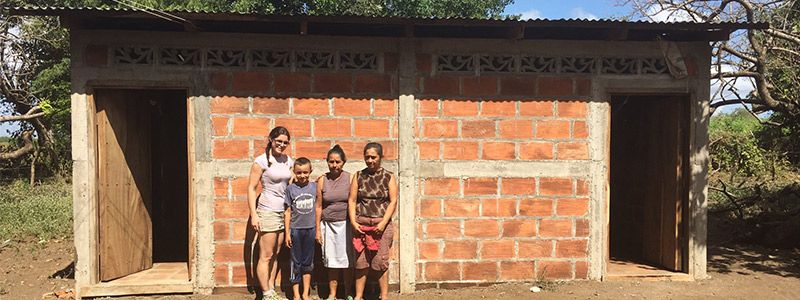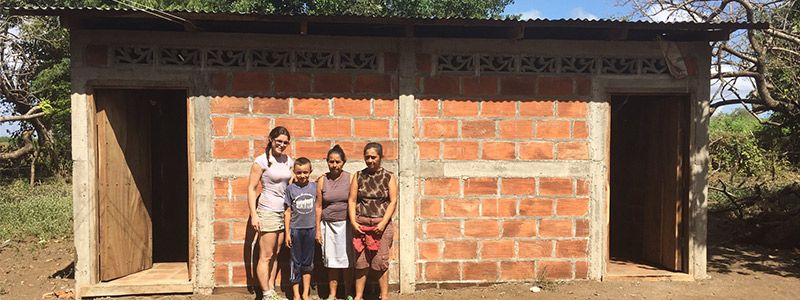
Housing
Housing Is a Foundation for Success
For all the complex reasons why poverty exists in the world, it is simply a lack of equity. Imagine trying to support your family day to day without a home, without reliable transportation, and without money to fall back on if circumstances change. In Nicaragua, this is the reality. Opportunities for advancement are few, and even exceptional individuals live paycheck to paycheck while hoping that what little they have is not taken from them by disaster or conflict.
Many organizations that aim to combat poverty do so by offering basic services or hand-outs to those in need. However, in practice, these methods often breed cycles of dependency among their recipients, doing little to affect the root causes of poverty. Rather than simply fixing problems that develop from poverty, FNEI strives to empower individuals to develop their own resources.
FNEI believes that by helping families to develop firmer economic foundations, they can and will succeed. Central to this belief is our housing project, a program developed from years of first-hand experience working in Nicaragua, and cutting edge research in philanthropy.</p><p>In the past three years, FNEI has built over 125 homes for families in Nicaragua, representing a dramatic increase in the quality of life and long term stability of hundreds of people. This work has had a tangible impact on the community where we work and serves as a model for innovative practices in humanitarian work both at home and abroad.
Here’s how it works:
1. The community screens and recommends families based on need and income
2. Eligible families must prove that they have clear title to the land, contribute labor and pay a partial mortgage on their new home
3. Student volunteers and master builders then assist the family in building their new home, as well as a latrine nearby
4. The title of the home is put in the name of the woman of the household to ensure that the family is protected should the parents become separated.
5. The family now has a permanent residence and an opportunity to succeed
The Impact
Ultimately, the family receives a house priced to their income, a wood-burning stove and latrine. This has a profound impact on the long-term stability of the family. Children with permanent homes have improved school attendance and better long-term health. As more and more families contribute mortgage payments, more and more houses are built through a system that is increasingly stable.
Each year, FNEI builds an average of 35 homes. With your help we can build even more and bring economic stability and growth to a region that is brutally impoverished. All while creating a dialogue that crosses boundaries of culture and class and discovering that, regardless of means, we are all humans living and cooperating together on one planet.

